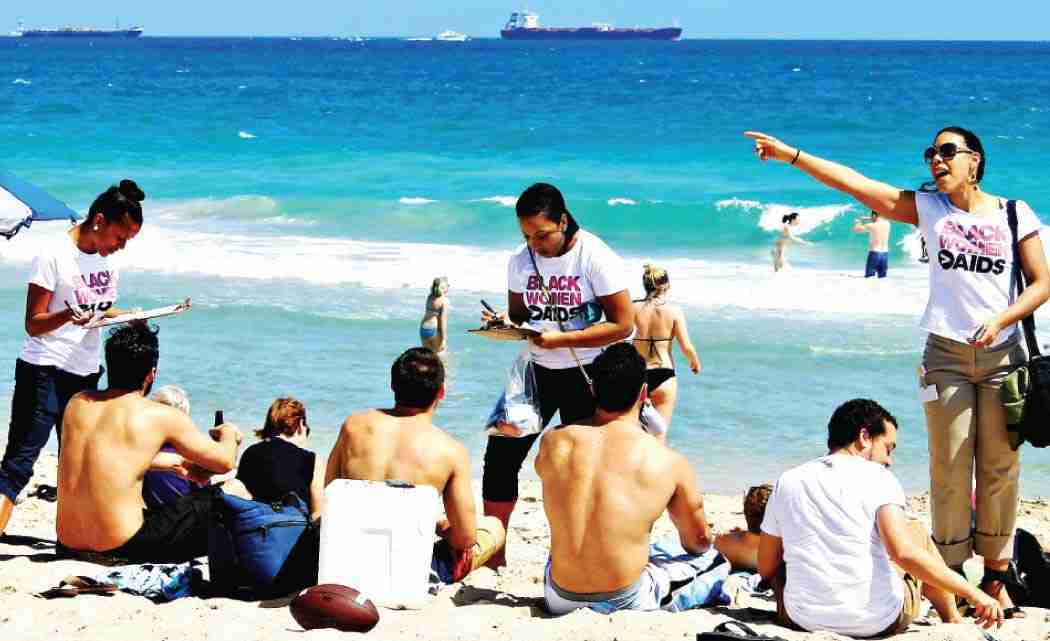BY BOB LAMENDOLA
Special to South Florida Times
FORT LAUDERDALE — The disease intervention specialists (DIS) at the Florida Department of Health spend their days locating people who have tested positive for an STD – or their sex partners – and offering them treatment.
Call them the DOH detectives of disease.
Sonya Richards, a former U.S. Army psychological intelligence operator who is now a DIS at DOH-Broward, went to pick up a girl, 14, to receive treatment, but found the repeat runaway was gone again.
The upset mother had no idea where to find her daughter but Richards remembered the teen previously mentioning a friend and a park where they liked to hang out. Sure enough, she found the girl there and drove her to the clinic.
“I told her that once a week, I would pick her up wherever she desired and take her in for her three weekly injections. That’s an hour-long round trip, but during that traveling time, we talked a lot,” Richards says.
“She was in a gang and she was doing drugs I’ve never heard of in my life. But she was a beautiful and intelligent young lady. She said she had seen how her siblings acted rebelliously and she did the same thing, too. Eventually she agreed to talk about outside counseling. Now the family is in counseling,” Richards says.
Cases like hers are a regular occurrence for the STD staff. The efforts of the 13 DIS field workers and nine other STD staff have helped DOH-Broward reduce the spread of HIV/AIDS and other STDs in the community.
“There is a human factor to what we do and often we are looking at the number of cases, partners, etc. The numbers are important but having staff with the skill set and dedication and genuine concern for people is as important,” says Robert Glover, STD Program Manager.
DIS workers are trained to draw blood to perform STD testing on clients. But most of their work is locating clients. They must sometimes work at night and on weekends to find those who can’t be reached during business hours. They may have to look outside South Florida.
DIS staffers typically rely on phone numbers, home and work addresses, family members and official databases to search for STD clients. But like good detectives, they must learn to think creatively when they come up empty.
“The most extreme thing I’ve ever done to find someone was to get a phone number off of a dog collar,” says DIS Katy Anderson. “I did about three field visits and each time, no one was home. There was a dog there each time I could see through the glass door. When it jumped up to bark at me, I got the phone number and surprisingly enough that phone number helped me reach the client.”
DIS staffers learn to make their methods fit the surroundings. They must speak plainly and directly, and dress appropriately. Most important, they must be vigilant to protect a client’s confidentiality.
When DIS staffers talk to a minor for the first time, they can’t tell the parents why they are there until they have told the child first. If the child is over 12, they need the child’s permission to disclose the disease to the parents.
“The parents may get angry. You have to be polite but firm,” says DIS Gabrielle McKoy. “People look at us in a negative light. I like to view us in a positive light. I’m not always bringing good news but when I bring bad news, I have a solution to bring them. ‘You can get treatment’ ”
Bob LaMendola is a communications specialist with the Florida Department of Health in Broward County.










No Comment